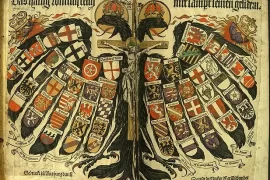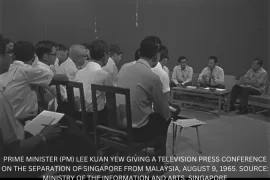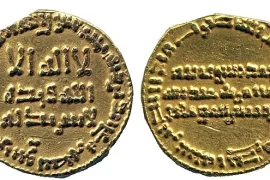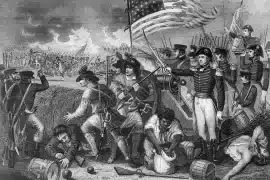Throughout history, there have been exceptional military leaders who have left an indelible mark on the world through their strategic brilliance, tactical prowess, and inspirational leadership. These legendary generals have shaped the course of nations, influenced the outcomes of battles, and become symbols of military excellence. In this article, we delve into the lives and achievements of the ten most famous generals in history, whose names continue to resonate across time.
List of the 10 most famous generals in history
The list of the 10 most famous generals in history includes Alexander the Great, Julius Caesar, Napoleon Bonaparte, Genghis Khan, George Washington,Hannibal Barca, Sun Tzu, Erwin Rommel, Subutai and Dwight D. Eisenhower.
Alexander the Great, the most famous general in history
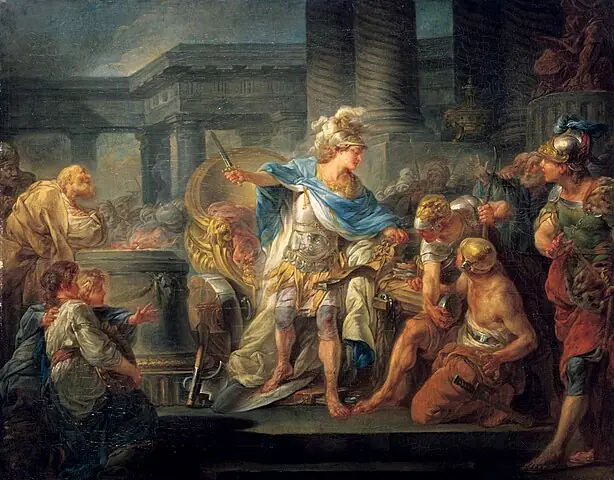
Known as one of the greatest military minds of all time, Alexander the Great, hailing from ancient Macedonia, conquered vast territories, establishing one of the largest empires in history. His tactical genius, combined with his charismatic leadership, led his armies to victory in battles such as Gaugamela and Issus. His influence extended beyond military conquests, as he spread Hellenistic culture throughout the lands he conquered.
Julius Caesar
A legendary figure in the annals of military history, Julius Caesar was a Roman general, statesman, and writer. His military campaigns, particularly the Gallic Wars and the civil war against Pompey, showcased his strategic brilliance and the loyalty he commanded from his troops. Caesar’s military achievements, coupled with his political acumen, led to his rise as the dictator of Rome, forever leaving an indelible mark on the ancient world.
Napoleon Bonaparte
Napoleon Bonaparte, the French military genius, transformed Europe’s landscape through his military campaigns. Rising to power during the French Revolution, Napoleon’s military acumen and bold strategies allowed him to conquer vast territories, establishing the First French Empire. Battles such as Austerlitz and Marengo demonstrated his ability to outmaneuver and defeat larger armies. The military legacy of this famous general continues to influence warfare tactics and strategies to this day.
Genghis Khan
Genghis Khan, the founder of the Mongol Empire, stands as one of history’s most formidable military leaders. Known for his exceptional organizational skills, adaptability, and cavalry tactics, he led the Mongol hordes to conquer vast territories from Asia to Eastern Europe. Khan’s innovative strategies and disciplined armies allowed him to overcome superior numbers and establish the largest contiguous empire in history.
George Washington
As the first President of the United States, George Washington’s military leadership during the American Revolutionary War laid the foundation for the nation’s independence. He is the most famous general in American history. Leading a ragtag army against the powerful British forces, Washington’s perseverance, strategic maneuvering, and ability to inspire his troops were pivotal in securing victory. His military leadership set a precedent for future American commanders and became a symbol of the nation’s fight for freedom.
Hannibal Barca
Hannibal Barca, the Carthaginian general during the Second Punic War, is renowned for his audacious military tactics and mastery of asymmetrical warfare. Leading his armies, including the formidable war elephants, across the Alps to invade Italy, he achieved remarkable victories against the Roman Republic, most notably at the Battle of Cannae. Undoubtedly, Hannibal’s strategic brilliance and tactical innovations continue to inspire military thinkers and historians to this day.
Sun Tzu
While not a traditional general in the conventional sense, Sun Tzu’s treatise, “The Art of War,” has had a profound influence on military strategy for centuries. An ancient Chinese military philosopher, Sun Tzu emphasized the importance of psychological warfare, intelligence gathering, and strategic planning. His teachings on strategy, leadership, and understanding the enemy have been studied and applied by military leaders and strategists worldwide.
Erwin Rommel
Erwin Rommel, known as the “Desert Fox,” was a German field marshal during World War II. He is one of the most famous generals in modern time. Renowned for his tactical brilliance and rapid armored assaults, Rommel became a formidable adversary in North Africa. His daring leadership in battles such as Gazala and El Alamein earned him the respect of both friends and foes. Rommel’s military genius and ability to adapt to changing circumstances cemented his place as one of history’s great battlefield commanders.
Subutai
Subutai is regarded as one of the most famous generals in history. He was a Mongol general and close confidant of Genghis Khan. His tactical versatility, combined with his mastery of reconnaissance and mobility, enabled him to lead the Mongol armies to victory in numerous campaigns. Subutai’s strategic brilliance played a pivotal role in the Mongol conquests across Asia and Europe, as he orchestrated stunning victories in battles like the Battle of Kalka River and the invasion of Eastern Europe.
Dwight D. Eisenhower, the most famous general in modern history
Dwight D. Eisenhower, known as “Ike,” was a five-star general and the Supreme Commander of the Allied forces during World War II. His exceptional leadership and ability to coordinate multinational military operations were instrumental in the successful D-Day invasion of Normandy. Eisenhower’s strategic acumen, diplomacy, and calm demeanor contributed to the ultimate defeat of Nazi Germany. After the war, he became the 34th President of the United States. He left a lasting impact on both the military and political spheres.
Summary of the 10 most famous generals in history
In conclusion, the legacies of these famous generals in history endure to this day. Their names are forever etched in the annals of military prowess and leadership. They shaped the course of history through their tactical brilliance, strategic vision, and ability to inspire their troops. Their stories also serve as a testament to the profound impact that exceptional military leaders can have on the world.

